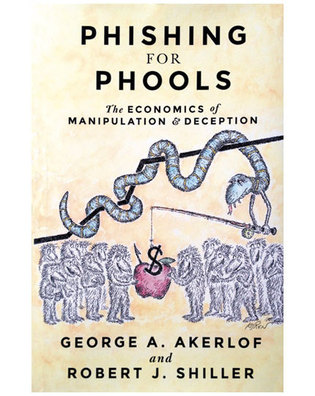 loading
loading
Reviews: January/February 2016 View full imagePhishing for Phools: The Economics of Manipulation and Deception James Ledbetter ’86 is the editor of Inc. and author, most recently, of Unwarranted Influence: Dwight D. Eisenhower and the Military-Industrial Complex. This unusual book offers a simple but challenging corrective to the assumptions made by most mainstream economists. For decades, economics has emphasized the magical wisdom of markets in maximizing a society’s wishes and desires. But if this were strictly true, the authors ask, then why in so many instances—the housing and financial crises, addiction to drugs, and gambling—do we end up with social outcomes that almost no one actually wants? Part of their answer is that the drive to maximize profit carries with it a strong incentive to appeal to the worst sides of human nature. Using an Internet analogy, Akerlof and Shiller explore how even legitimate businesses “phish” for unsuspecting consumers (“phools”). They depict the practice of phishing as both older and more widespread than most people think. Often, phishing strategies emerge in new, rough-and-tumble industries. In the early twentieth century, the advertising industry proffered outlandish exaggerations. As consumers grew more wary, ads shifted to more-subtle strategies, including appeals to psychological urges. The message was usually within legal bounds, but the practice made “phools” of us all, the authors maintain; think of the tens of billions of dollars spent on cigarette advertising well after the link between smoking and lung cancer was established. As financial sector “phishing,” they offer the savings and loan crisis of the ’80s and ’90s and the massive fraud in the mortgage market that contributed to the deepest economic crisis since the Depression. Probably not every reader will agree with every interpretation or argument—but every reader will find something that enlightens and stimulates.
|
|